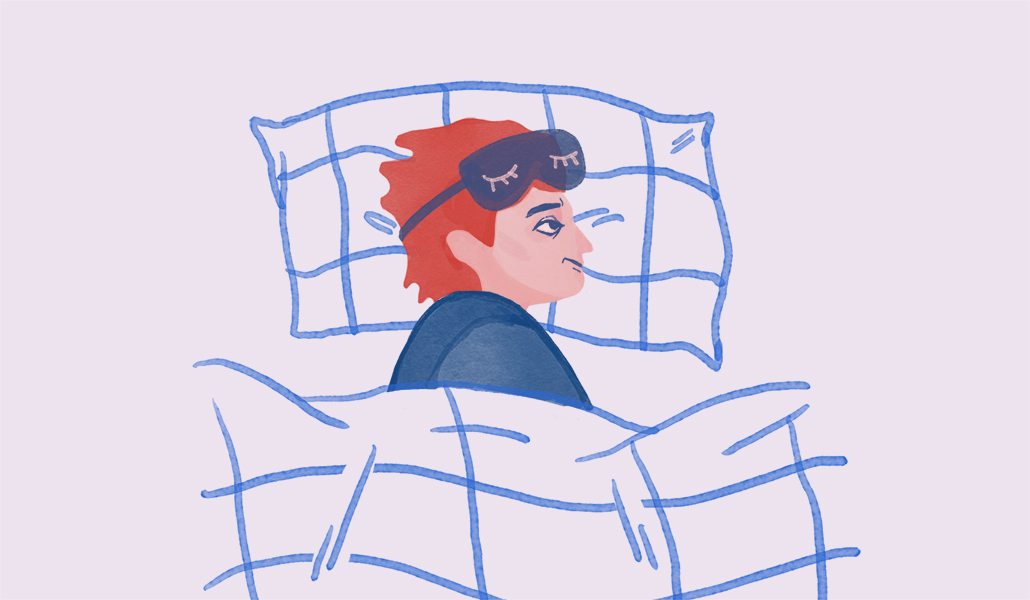Employer sleep support for new parents – much needed or a token gesture?

When ophthalmic technician Nicola Ramsay returned to work from parental leave in September 2021, the sleep deprivation from her baby waking every one to two hours each night saw her medically signed off work with exhaustion for 12 weeks, with her mental health also in decline.
“It wouldn’t have been safe for me or my patients to continue as I was,” said Ramsay, who is based in Coventry, U.K. “I was planning on giving up my job in the National Health Service that I had worked so hard to level up over the years.”
Through Instagram, she found baby sleep consultant and paediatric nurse Hannah Love. Ramsay signed up to one of Love’s courses which guides parents on how to teach their baby to self-settle, and gradually sleep through the night. Following Love’s guidance, Ramsay was able to achieve this in six weeks, putting her in a position to safely return to work.
“I eagerly returned to work knowing I could cope much better. I got my life back and my sleep,” said Ramsay.
Love says she had many similar stories from mothers returning to work who felt their performance – and careers in fields such as medicine, the police force and in the civil service – would be compromised due to the sleep deprivation that comes with a new baby.
New parents face a deficit of three hours of sleep a night on average in the first year of a baby’s life for 70% of new parents, according to baby and pregnancy sleep brand Snuz’s recent survey of 1,300 parents. But not all sleep loss is distributed equally, as this study from mattress brand Slumber Land highlights. New moms lose over 650 hours of sleep in the first year of raising a child, while in comparison, new dads lose a mere 90 hours.
Love is currently in talks with four major organizations about offering her courses and consultation to ease the transition back to work for returning new parents. This is something Meta has recently started providing to its employees in a move that could spark a trend in the employee benefits market.
“It’s about more than sleep. I want parents to be able to enjoy their parental leave and to know, once the time comes, the transition back to work will be smooth, free of anxiety and exhaustion and most importantly they will be safe to do so,” said Love, who is based in Berkshire, U.K.
Fellow baby sleep consultant Daisy Ferns, based in Derby, U.K, is already working with two companies and about to add two more, to provide workshops to returning new parents to help support them through any sleep challenges they may be facing.
“More employers are taking employee well-being seriously and recognizing the link between happy people and productivity,” said Ferns, citing research underlining the effect of sleep deprivation on work.
One of those is Baringa, a management consultancy, which for the past five years has enabled employees to access a £300 ($359) Wellbeing Fund which they can use on an experience which enhances their own personal well-being. Director Jody Coleman tapped into this fund five months ago, when his son was 13 months old and still waking frequently throughout the night. The fund covered most of the cost of hiring Fern to create a personalized sleep support plan for the Colemans, whose sleep deprivation was having a severe impact both personally and professionally.
“It felt relentless. We were never rested and it made for a tense atmosphere at home and simple things at work become increasingly challenging,” said Coleman.
“Once we got started (with the sleep support) it was incredible. It wasn’t without a few tough evenings and late nights being strict with the routines, but it was amazing how quickly we all adapted. If anything, I’m annoyed we hadn’t done it sooner.”
But questions have been raised as to whether such a move could have negative implications. Firstly, the idea of sleep training which is controversial and can go against realistic expectations of how babies sleep. Secondly, whether corporate-sponsored baby sleep support is normalizing a return to work for parents compromised by sleep deprivation.
Workplace well-being consultant and founder of well-being platform The Anti-Burnout Club, Bex Spiller, shared concerns that employers introducing baby sleep support was a “headline grabbing initiative” that would fail to address many of the issues new parents face in the workplace.
“Putting the onus on the employee to make sure they’re back and fully functioning as soon as possible does more harm than good,” Spiller warned.
“We’re already seeing issues with presenteeism at work, when employees feel as though they should work through mental or physical health conditions instead of taking proper time off. Is this going to exacerbate that issue?”
Love countered that it was not about endorsing sleep training, but supporting families to encourage sleep habits that are sustainable in the long term.
Both Love and Spiller suggested employers go beyond offering baby sleep support in isolation, but create a holistic package of support for new parents. Coleman’s employer Baringa, for example, offers six months parental leave at full pay for all new parents to take within the first nine months.
Love also stressed the importance of senior managers educating themselves on what new parents are experiencing, while also educating employees on why they should actively seek support.
“Good sleep positively relates to greater daily intentions to pursue more status and responsibility. Emphasis must be on safety though, in roles that require driving, or that could put others in danger, like surgeons, doctors, pilots or manual workers. In these roles, the risk of exhaustion, or even poor concentration could be life-threatening,” added Love.


